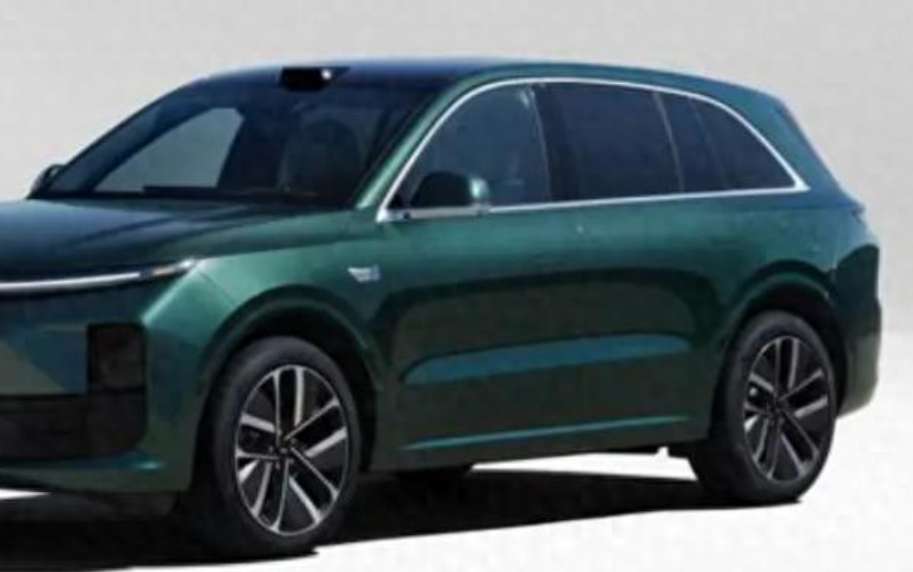Shifts in the Global Automotive Landscape
Advertisements
The automotive industry is witnessing a seismic shift as the competition heats up on a global scale. Recently released financial and sales data for 2024 have unveiled intriguing dynamics, particularly emphasizing the rapid ascendance of Chinese automakers amidst a traditional landscape dominated by established giants. Toyota emerged as a formidable leader, achieving a remarkable year-end sales figure of 10.8 million vehicles, making it the sole automaker to surpass the 10 million mark for the year. This accomplishment cements Toyota's position as the top player in the industry, further solidifying its reputation for reliability and innovation.
Closely trailing is the Volkswagen Group, which once held the crown for numerous consecutive years. With a total of 9.03 million vehicles sold in 2024, Volkswagen retains a significant global presence, albeit with a noticeable dip in sales compared to its heyday. The rise of competitors like BYD, which managed to break into the top five with sales of 4.27 million, reflects an evolving market landscape. The entry of two Chinese brands—BYD and Geely—into the global top ten showcases a remarkable shift, underpinning the advancements in electric vehicles and sustainable practices now driving the automotive sector.

Geely's performance was equally noteworthy, recording sales of 3.33 million vehicles, illustrating a 22% increase year-on-year. These figures are symptomatic of a broader trend within China's automotive industry, which saw a significant uptick, with domestic brands claiming a 61% market share—a notable increase from the previous year. Observers, such as Cui Dongshu from the China Automobile Association, highlight this surge as a direct result of the impressive performance of homegrown brands in both the electric vehicle segment and the export markets. This shift speaks volumes about consumer preferences gravitating toward sustainability and innovation.
The acceleration of electric vehicle sales in China has not only reshaped the global hierarchy but also fundamentally altered how traditional automakers approach the market. In 2020, for example, BYD's annual sales were a mere 430,000 vehicles, a stark contrast to its current sales figures that illustrate a growth trajectory largely powered by electric vehicle adoption. Different from many older brands, BYD’s focus on innovation and green technology has allowed it to evolve quickly; its passenger vehicle sales alone have soared to 4.25 million units in 2024, marking an impressive 41% increase.
Moreover, Geely's emphasis on integrating cutting-edge technology into its offerings—primarily through the promotion of its Galaxy Line—has fueled this remarkable growth. In January 2024, Geely reported total sales of 266,700 vehicles, marking a 27% increase month-on-month and a 25% increase year-on-year. Notably, Geely surpassed BYD in domestic sales for the month, a significant achievement solidifying its position in the local market. The Galaxy Line, which recorded a staggering 134% year-on-year growth, underscored the burgeoning interest in electrified mobility solutions and an overall shift in consumer sentiment.
In contrast, traditional players such as Volkswagen, General Motors, and Honda have faced hurdles in maintaining their competitive edge in China, a market that has long been one of their largest revenue generators. Reports indicate that these manufacturers’ sales have been declining due to their sluggish transformation towards electrification and digital integration. For instance, Volkswagen reported a significant drop in sales within China, with only 2.93 million vehicles delivered in 2024—a 9.5% decrease compared to the previous year. This decline starkly contrasts with the company’s impressive numbers just five years prior, when it sold over 4.23 million vehicles in China in 2019.
As these trends unfold, various global automakers are recalibrating their strategies, focusing on electric vehicles (EVs) and smart technologies to revive their foothold in China. Volkswagen, for example, is now increasing investments in electric and intelligent driving technologies. Collaborations with local tech companies are becoming commonplace, aimed at bridging the technological gap that has emerged in the face of fierce competition from agile companies like BYD and Geely. These strategic pivots are essential for reviving sales momentum and adapting to shifting consumer expectations.
Nissan is also quickening the introduction of its electric models in the Chinese market and has reinforced collaborations with Dongfeng Motor to develop EV models tailored for Chinese consumers. Meanwhile, Honda is actively increasing its presence in the electric vehicle segment both in terms of product offerings and supply chain enhancements, particularly through partnerships with battery producers like CATL. These undertakings reflect a broader commitment to modernization and sustainability in China's rapidly changing automotive landscape.
Additionally, recent data indicates an increase in the cumulative exports of Chinese passenger cars, which reached 4.79 million units in 2024—up 25% from the previous year—signifying that external markets are becoming increasingly receptive to Chinese automotive products. BYD's efforts yielded an export figure of 433,000 units, a remarkable increase of 71.8%, while Geely's overseas sales reached 1.22 million—demonstrating robust international demand for these brands.
As the automotive industry evolves, one cannot overlook the cultural implications of these changes. The increasing demand for electric vehicles is underpinned by growing environmental awareness among consumers worldwide. As automakers pivot towards sustainable practices, they are not only addressing regulatory pressures but also embracing a fundamental shift in consumer values which prioritize ecological sustainability as well as cost-effectiveness.
In conclusion, the automotive sector is on the brink of a transformative era where established players are being challenged by ambitious newcomers. The data released for 2024 exemplifies a shifting paradigm, whereby innovation and adaptability will be pivotal in defining future market leadership. The ascent of Chinese manufacturers like BYD and Geely reflects not only a strategic emphasis on electric vehicle offerings but also captures the essence of an industry in flux. The competitive landscape is evolving, and it will be fascinating to observe how traditional manufacturers respond to the determined advancements and consumer preferences that are reshaping the way we think about mobility.
Leave a comments